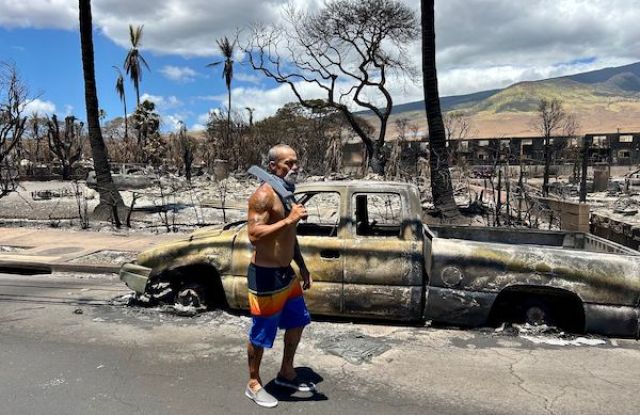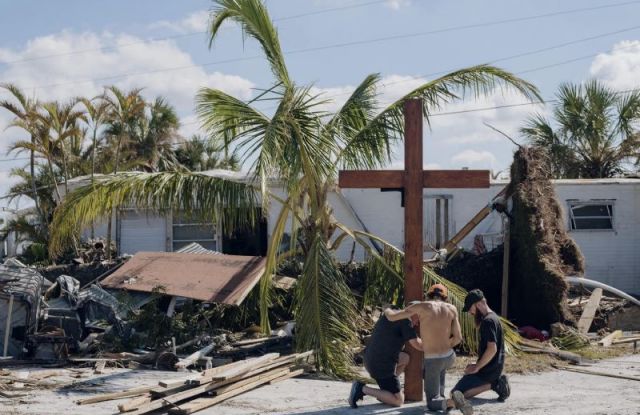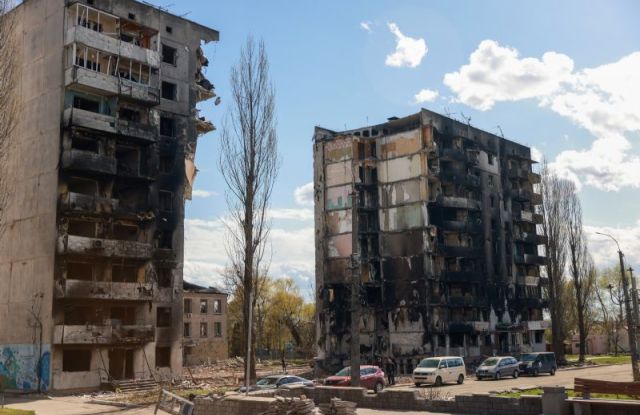Kayla Zilch and her squad launched out of Atlanta last week right into the middle of the refugee crisis. Sleeping on the Serbian streets with her squad, she was awakened in the middle of the night by hundreds of Syrian refugees all around her. [read more here]
It’s one thing to…
By Seth Barnes
Kayla Zilch and her squad launched out of Atlanta last week right into the middle of the refugee crisis. Sleeping on the Serbian streets with her squad, she was awakened in the middle of the night by hundreds of Syrian refugees all around her. [read more here]
It’s one thing to read in the news about the hundreds of thousands of refugees running from the ISIS-instigated horror. But how do you respond when they show up in your bedroom?
I posted a picture on FB of a ragtag group of refugees walking along the train tracks. The response from some of my Christian readers was laced with fear. One said, “Most of these so called refugees are military men infiltrating Europe. I believe we are witnessing the beginning stages of Armageddon.”
Really? That wouldn’t have been my first response. Jesus doesn’t give us a spirit of fear. So, that begs the question, how are we to respond to refugees?
Here are three thoughts:
1. The Bible says “help them”
All through Scripture we see God asking his people to care for the dispossessed. God’s heart breaks for those who lack the basics of food, shelter and love.Isaiah 58 gives us a clear word:
“Share your food with the hungry
…provide the poor wanderer with shelter—
when you see the naked…clothe them”
Jesus said that his ministry was to those who are “burdened and battered.” He said that his call was to set them free. He told us to “go and do likewise.” How is it that we as disciples have so secularized and politicized our understanding of his call that we equate it with a political party or a wielding of national power?
God has compassion on those walking down the railroad tracks. We are his hands and feet – his means for demonstrating compassion to them. The people of Syria and Iraq are being killed. Isis has targeted them for martyrdom. Will the body of Christ rise up and care for them?
2. Be clear about your nationhood
OK, most of you reading this are from America. But chances are, a lot of what’s going on in Washington DC does not represent your belief system.
What should our belief system be and where should we give allegiance?
Jesus said, “They are not of the world, even as I am not of the world.” (John 17:16)
Paul told the Philippians, “For our citizenship is in heaven.” (Phil. 3:20)
Peter asks believers to consider ourselves “aliens and strangers.” (1 Pet. 2:11)
Perhaps some of us need to re-think where we get our sense of security and identity.
3. We’re all refugees
Life on earth is hard. We are born in pain, entering the world screaming. And many of us leave the same way. We are constantly wounded, disappointed, and abandoned. We try to make homes that insulate us from pain and then most of us experience broken homes.
We’re all refugees. We’ve been cast out of the Garden and find ourselves east of Eden. We’re all beggars sharing with others where to find bread. And in light of our situation, the bread that we’ve found is very good news indeed.
We are not an elite group trying to protect our good fortune; God calls us to identify with those whose misfortune is a present reality.
About six years ago, God spoke to our Adventures staff and said, “Make room in your homes for my children – those you’ve called orphans are my sons and daughters. Like you, they are members of my family and they deserve a place at your tables and on your porches.”
Orphans are the ultimate refugees – fleeing from broken homes. God says that true religion does not involve sitting in a pew, but caring for his children who are refugees.
Where are you with all this? Where is your heart? Have you opened your home to the poor wanderer? Or do you often find yourself in self-preservation mode?
We who follow Jesus belong to a tribe that is called to live free and to share with others the joy of an abundant life in all of its implications. We are not called to huddle, but to show up with a blanket and a plate of food for those who are huddling against the cold of homelessness.
If we are free, let’s share the fruits of that freedom with a hungry world.




This image is heartbreaking…and begs me once again to seek Jesus in the midst of such pain and suffering…It is also timely. My fall semester (of my final year of Master’s study) has just started, and I am privileged to sit with Randy Woodley in Christian History and Theology and study through a multi cultural lens in which we also clearly see Jesus hanging out with and serving the marginalized. One of the questions we pondered is, “who is our enemy?” and the answer is often the one most unlike us, and my comment in that thread was that perhaps at times those who believe they are like us (Christians) may in fact be most unlike us. Or unlike Jesus. The conversation continued, with attention being paid to the fact that Jesus also hung out with the Pharisees, but his attitude was in sharp contrast with them than towards the marginalized.
Perfect love casts out fear. Fear not, for I am with you. My response on reading your feedback was also, “really?” but unfortunately I was not surprised.
That was an arresting comment – “who is our enemy? often the one who is most unlike us.”
WORD!!! Amen … Shine JESUS shine through your vessels in their midst.
Seth. Thanks again for challenging me. When you clothed me, when you fed me, when you visited me….when you did these things to the least of these you did it into me.
Lord give us a heart to love and serve your children. Show us where and how to plug in and be about your business.
You are welcome, Joel.
These are all good points, and the last few years I’ve been attempting to reconcile them with the knowledge I’ve acquired from studying Islam. It has not been an easy road. I have asked God for wisdom in understanding and applying, b/c without Him, I’d be overwhelmed.
For what is worth, here is where I am today…in bullet point form…b/c not place to write a paper. Keep in mind, this is not an exhaustive list…by any means.
1. Eastern & Western civilizations are inherently different and not based on basic tenants we take for granted. Like human rights. They do not apply to women & children.
2. In some of the boat crossings, Christians were thrown overboard. OR, their throats were cut & then thrown overboard. There is a lack of respect for life in Eastern civilization.
3. Jesus preached turning the other cheek, he did not preach being a doormat. He maintained boundaries, he did not engage with everyone, and he kept himself safe until the appointed time. He used his Head and heart.
4. The Dahli Lama said recently about Europe “compassion without wisdom is useless. Not everyone can come to Europe.”
5. The bible says “the way to hell is paved with good intentions”.
6. Islam is a theocracy…it is not a religion. Is does preach violence. Saudi Arabia has Sharia law in place. They have public decapitations for things like adultery, stealing, et . They just hired more men to do public amputations for other crimes. A woman was arrested today for not wearing gloves in a store. This is not ISIS. This is Saudi Arabia. They thought ISIS was extreme, but they were with them on Sharia law being the law of the world. Sharia law is the law of Saudi Arabia. And their prophet says they need to make it the law everywhere. In fact, Saudi Arabia just offered Germany some help with the refugees. They will build 200 Mosques for them in Germany. You are fooling yourself if you don’t think they would love 200 Mosques in every state in the U.S. Is that what Jesus had in mind? What does the bible tell us? I seriously don’t know.
7. Yes, follow Jesus teachings to help…but with wisdom too. There are things to be afraid of. One thing I did was look at what happened in the European countries that took in large populations of Muslims over the last 5-10 years…it’s not pretty. They don’t assimilate…how can they…it is against their religion. They think western culture should assimilate to them. And the demands for changes to the laws on even the little things is mind-boggling. The help we do b/c Jesus tells us to…is often spit on, not appreciated, b/c you are lower than them. There are always exceptions, thank God, but as a rule it is a medieval civilization. That is why the European nations are fighting to keep them out…they’ve experience nothing but trouble over the last decade. You can google European papers and read what I have been reading for years. Women esp. should be careful.
8. Some countries who have had such horrible problems with Muslims, have said they will take Muslim women and children, no men. 80% of the refugees are men. Yep. If I hadn’t been following all year, I wouldn’t have known this either.
9. I wrote more than I meant to, and much less than I could. I just want Christians to be clear on protecting themselves. If a madman came to your door and you had 2 little girls, what would you do? And he wanted food and a bed and your car and your house and your clothes, and you to be his maid….what would you do? I can read the bible and sermon on the mount and go, well better do all that. But Jesus would be in my head saying “Are ya kidding me?!” I told you to be kind….not stupid.
10. Where would Jesus stand on protecting our way of life? Western civilization? I don’t know the answer to that. But if we accommodate all the things Mulims ask for, we will lose our way of life. It is inevitabile. They are a different incarnation of the Wolf in Sheeps clothing warning. I’m heartbroken about all this. I did not expect my 7 year study to teach me to be afraid. Maybe forewarned is better.
I would love to see us take in Muslim women & children, and other minority religions from Syria, and all orphans. But the men….after all I’ve read these last many years, even from leaders of countries that initially took families in thinking the men would behave better…they will no longer take men. Also, the splits between Shia & Sunni & Kurds come with these refugees. These deep seated resentments will not go away between the sects. This is unlike any refugee population that has ever been take in by western countries.
Be kind, be the hands of Jesus, give what you can…but also be wise and watch for Wolves in Sheeps clothing. Protect your heart. Be gentle as a Dove, but Wise as a serpent. These are also things the bible teaches. And though we have not been given a spirit of fear, we do have an in-built physical warning system that can get triggered. The flight/fight response. That is a gift to also pay attention to. It has saved my life more than once. And to God goes the glory.
Peace.
That’s compelling analysis and a provocative recommendation, Mel. It is appalling how they treat women. And we need to be discerning.
This blog and your reply sum up the war in my heart. The Lord would call for wars when a nation of people were terrorizing their own and others, after given ample chances to repent. As Christ, He calls us to love our enemies. I believe we have westernized the word love, and need to go back to the meaning God gives us. And Jesus teaches that if our neighbor takes us to court, to give twice of what’s asked- not demanded and threatened, though being taken to court is close to forced. at gunpoint. No, we cannot live in fear of no man, yet like Jesus, I’m not willing to just give in to their lifestyle. As He flipped the tables in the temple, by the power of His Nam l will flip Shariah law in my land. Give to those who are hungry, but if they don’t accept you in the Name of Jesus, shake the dust off your feet!!
Correction on my sentence about being taken to court–“to give twice of whats asked-not demanded at gunpoint, though being taken to court is close to threatened and forced”– I see that as a Christians way to show publicly their willingness to truly forgive and humbly right a wrong.
Good points, Crystal.
Excellent points Crystal, especially how we’ve westernized the biblical word love. I was doing some research recently and found out Knowledge had 8 different forms in the bible before it was translated. Just as love had different forms, and those were not differentiated. I do believe that has done Christians a disservice on clarity.
I like the term “war in my heart”. It’s a good prayer: “Lord, please bring peace to this war in my heart…”
Seth, I appreciate the ways in which you regularly express care and concern for the weak and vulnerable in society and how you challenge people to actively reach out to those in need. I agree that, as followers of Christ, we are to show compassion for those who are suffering by meeting them in their pain and by extending the same love and forgiveness that we have received through Christ.
While I agree with the premise of this post and understand the heart of your message, there are a couple of questions that I have concerning your statements about orphans. In several places you speak of orphans as God’s children, and you even state that God has called them his “sons and daughters.” Is it your belief that all orphans are children of God in some sense? And, in what way does God consider them “members of [His] family?”
Would you mind clarifying your terms so that I don’t misunderstand your position?
Andrew – let’s start with the basic passage that “God so loved the world” – that’s every man woman and child. He didn’t love us after we embraced him, but before.
Move on from there to the many times that God refers to us as sons and daughters, for example this passage from 2 Cor. 6:18, “I will be a Father to you, and you will be my sons and daughters.”
God adopts us into his family. Rom. 8:15 & 23 talk about how he adopts us as sons. If he adopts us, then we were orphans “children of wrath” who needed adoption.
For further reading, The Fields of the Fatherless is a good book on the subject.
i too have spent many hours searching for the truth about Islam. The Hadith allows for lying especially to an infidel. The one clear understanding that I’ve received is that Islam is antichrist. They do not believe that Christ is the only begotten son of God. The Shia’s believe that their Mahdi has been in hiding for over 1,000 years and will only resurface when the world is on the brink of utter annihilation. At that time they believe that Christ will appear and tell the world to accept Islam. It takes time to get the truth and for now, if one is willing to work at it, he/she can search and read on the net about these beliefs. I’m afraid that radical Islam is recruiting young disenfranchised blacks into their ranks. This gives these young men a platform to unleash their frustrations in the form of hate on America. The love of money is the root of all evil which is why America has given away its manufacturing to other countries.